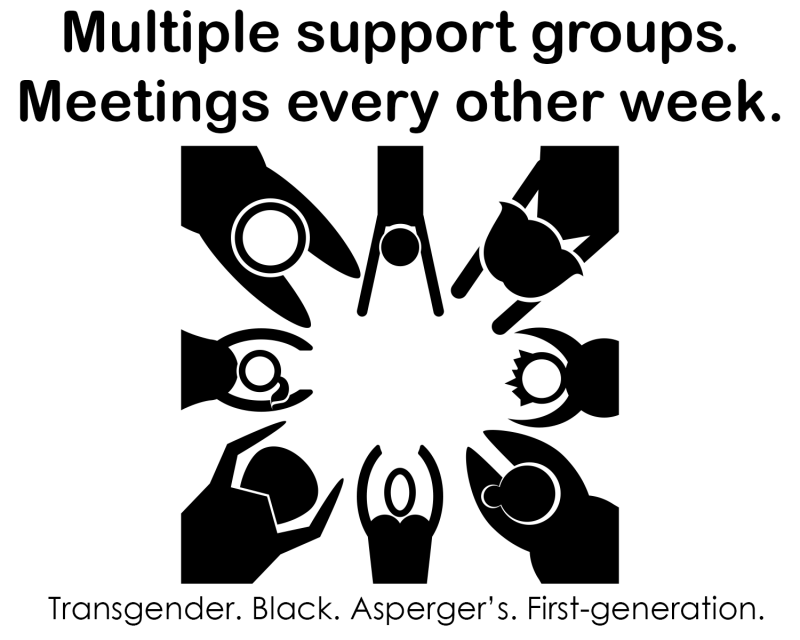The support group program run by Counseling and Health Services is back this semester with some new additions. Due to increased interest and success with established support groups — the transgender student support group and the black student support group — the departments will offer two new groups this year, one for students with Asperger’s and one for first-generation students.
Richard Reams, associate director for counseling services and co-facilitator for the transgender support group, discussed the importance of the support groups for underrepresented groups on campus facing unique adversities.
“Perhaps every student faces some unique challenges but there are populations. [Transgender] students, developmentally, are encountering some challenges that perhaps the vast majority of students don’t encounter. For black students, for example, to be on a campus where there’s so few black students and so few black faculty and staff — it’s going to be a very different experience than, say, a historically black college or university,” Reams said.
Reams asked Dema Stout, a certified coach for students with autism spectrum disorder and attention-deficit/hyperactivity disorder (ADHD) who has been working with Trinity students for seven years, to lead the support group for students with Asperger’s.
“I think there’s value to one-on-one [counseling], but I believe there’s value in shared experience as well,” Stout said. “My hope is that social relationships form in this group. Having peers that are also on the spectrum can be helpful. I don’t mean exclusively, but those types of relationships seem comfortable, and folks are not as anxious about having to fit into the neurotypical world.”
The black and transgender student groups will continue for their second and third year, respectively. Reams was involved in the creation of the first support group for transgender students two years ago. The idea for the groups began after polling students one-on-one during individual counseling.
“What initially prompted us to want to offer this was awareness for the potential need through our individual counseling work here. All of us have seen some students, for example, on the autism spectrum and had inquired with those folks, ‘Would they be interested in a support group?’ There was enough potential interest that we said, ‘Let’s offer it and see what happens,’ ” Reams said.
Aisha Zarb-Cousin, practicum counselor at Trinity and facilitator of the black student support group, began the group in the spring of 2018. Zarb-Cousin believes that it is important to have other students to unite with and to feel safe sharing one’s experiences.
“The group focused a lot on discussing the unique experiences of students of color. At Trinity University, some of the things that they experienced of often finding themselves as the only black person either in their dorms or classrooms and some of the things that they experienced amongst their collegiate peers that are sometimes difficult,” Zarb-Cousin said. “And we discussed what they can do to rally around each other, what they can do to continue to support each other.”
Although Zarb-Cousin has topics in mind for each session, the flow of the meeting is up to those who attend.
“It is a support group so the group gets to guide the discussion, so if there’s something pressing that’s happening with a particular student along the lines of what the group is designed to do then that’s where we’ll focus,” Zarb-Cousin said.
Claudia Kypuros, facilitator for the first-generation support group, thinks that the sense of community that the support group provides helps students find resources they might need and have a space to express concerns.
“It is well-known fact that many first-gen students can face a series of challenges specifically during their first semester in college. As a result, I felt that it would be both helpful and appropriate for these students to have a space to process their feelings, describe the ups/downs, share the most helpful resources, and ultimately to discuss successful navigation of their context which is now Trinity University,” Kypuros wrote in an email interview.
The meetings will be every other week and led by a facilitator. Date and times are to be announced. For more information, contact Richard Reams at rreams@trinity.edu, Aisha Zarb-Cousin at awzarb-cousin@ollusa.edu, Dema Stout at dema@sbcglobal.net or Claudia Rodriguez Kypuros at ckypuros@trinity.edu.







